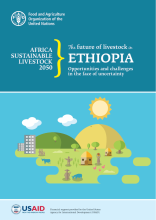Land Library
Welcome to the Land Portal Library. Explore our vast collection of open-access resources (over 74,000) including reports, journal articles, research papers, peer-reviewed publications, legal documents, videos and much more.
/ library resources
Showing items 19 through 27 of 4326.ABSTRACTED FROM WEBSITE: Our new Research Brief The Implementation of the UN Declaration on the Rights of Peasants and Other People Working in Rural Areas discusses the roles and responsibilities of governments, parliaments, domestic courts, National Human Rights Institutions, UN specialized agen
In 2010, the Vietnamese government implemented a national payment for ecosystem services (PES) policy. In promoting the policy, the government has conveyed PES as a successful policy that has achieved multiple objectives, including forest protection and poverty alleviation.
ABSTRACTED FROM EXECUTIVE SUMMARY: This research analyses the ways in which current changes in land tenure, agrarian and socio-economic systems are reshaping resource allocations and transfers within households in indigenous communities in Ratanakiri Province, Cambodia.
Over the past 20 years, FAO has played an active role in supporting Armenia’s national development plans and emergency projects aimed at increasing agricultural productivity and improving the country’s food security.
Land use models play an important role in exploring future land change dynamics and are instrumental to support the integration of knowledge in land system science.
Armed conflicts create drastic socioeconomic shocks that lead to land use and land cover changes in ways that are not yet well understood. Several studies have used satellite imagery to detect such changes during periods of conflict.
This booklet presents both successes and challenges faced by the people of Sierra Leone, whose lives and livelihoods are dependent on their legitimate rights to own, farm, fish, build or develop an area of land or water.
Evaluation of FAO’s Contribution to Cambodia. Although Cambodia is rapidly transitioning to a more industrialised economy, the country is still among the poorest in Southeast Asia, and the risk of sliding back into poverty remains high, especially for rural households.





